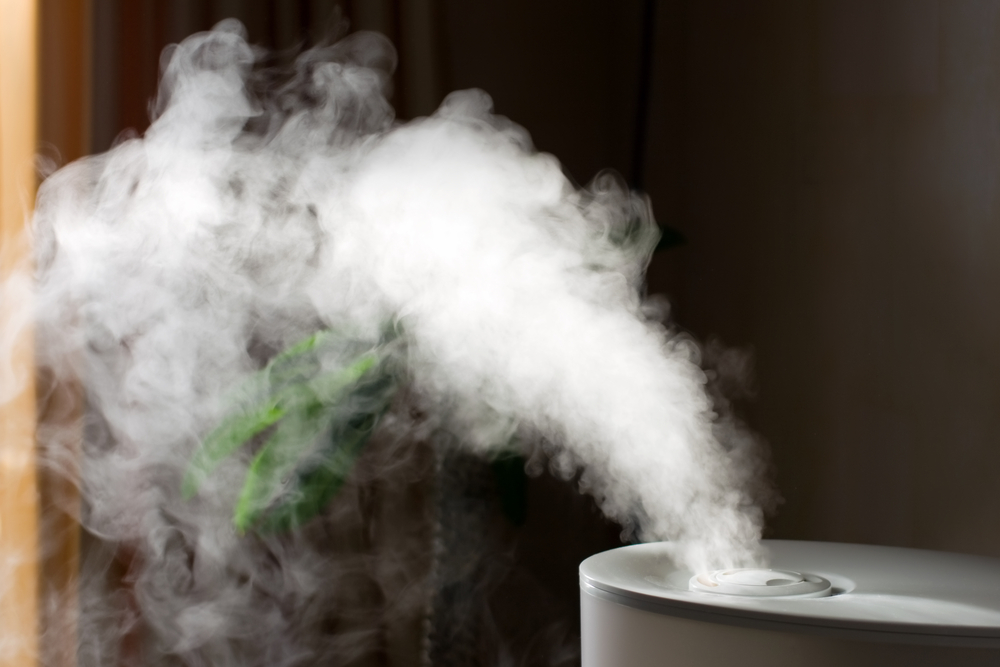Homeowners are extremely particular about setting the ideal temperature in their homes—so much so that they may constantly adjust the thermostats to find that utopian spot between too hot and too cold. However, most homeowners tend to overlook the humidity levels inside their properties. To gain a better understanding of humidifiers vs dehumidifiers, start with the term “humidity”.
Humidity is the level of moisture in the air, which can become high in warmer weather and extremely low in cooler conditions. Bear in mind that optimal humidity levels support a healthy body, so if you deal with moisture inconsistencies, you’ll require either a humidifier or dehumidifier depending on your location.
The first step to take is to identify the humidity levels within your home. The Environmental Protection Agency suggests that your home’s humidity levels should be within 30 to 50 percent. You could use a hygrometer to determine the humidity of your house, but keep in mind that the levels may change frequently during the year. During winter, your house may become drier, especially if you use a furnace. You may find that your nasal passages are dry, a sure sign that the humidity is far too low.
Conversely, when you find that there’s condensation around your windows or some surfaces seem to always be damp, you’re encountering high humidity—and creating the perfect spot for mold and bacteria to thrive. These contaminants are potentially linked with respiratory illnesses, which is why it’s crucial to obtain a dehumidifier during these periods.
The Difference Between Humidifiers and Dehumidifiers
Humidifiers and dehumidifiers are easy to confuse since most homeowners don’t understand the difference between the two. The primary difference lies in their function and main use.
Both pieces of equipment work to regulate the amount of moisture in the air, but they do so in different ways. With a humidifier, you’re increasing the humidity levels by pumping moisture into the air, which is ideal for use in winter when the air is generally drier and harsher on your skin. Dehumidifiers absorb moisture from the air during the summer, which helps prevent the growth of mold and mildew.
Humidity and Health
A range of medical conditions are aggravated by extreme levels of humidity. If house occupants suffer from allergies, they are probably seasonal, which means that you’ll need to understand whether the air requires drying or moistening during specific periods. Warm conditions in the summer can encourage allergens to travel further, which is why a dehumidifier may be the right fit for warmer seasons.
Dry air can sometimes lead to sinus attacks since the contaminants are weighty. With a humidifier, the air receives moisture, which means that those nasty irritants continue floating instead of entering your nose and mouth. The additional moisture can help to relieve the constant irritation of the sinuses. Similarly, a stuffy nose may find some relief if you use a cool-mist humidifier.
Individuals living with skin problems such as eczema can go through severe pain in dry conditions. Humidifiers will add moisture to the air and ease the effects on the skin.
Babies are highly susceptible to bacteria in the air. If your baby is suffering from congestion or a breathing issue, start using a humidifier. Consider pairing it with an air purifier to further prevent the development of mold and mildew.
If you’ve ever slept next to someone who snores, you know that it’s almost impossible to find comfort in this scenario. Snoring is often related to the dryness of the air around the house. With the use of a humidifier, the moisture that releases into the air may help to soothe the larynx, which can reduce loud snores. Cool, moist air is easier to breathe, which is why you should consider turning down the heat during winter and instead opting to add more covers while keeping the humidifier operating.
Individuals experiencing a dry cough can benefit from the use of a humidifier. The excess moisture can help loosen phlegm and mucus, which may ease the symptoms. Additionally, some humidifiers allow you to use essential oils, such as eucalyptus and oregano, which may make it feel easier to breathe and help soothe a cough.
Humidity and the Home
Apart from affecting the occupants of a home, humidity levels can leave a mark on the physical components of the property. If your space is always moist and you can spot signs of excess dampness, such as mold and mildew on the ceilings and walls, you should invest in a dehumidifier to eliminate the excess moisture from the air.
Extremely dry conditions can cause wood beams to crack and damage leather furniture and plaster. In this case, obtain a humidifier that provides the correct amount of moisture to protect these components.
Find Professional Help
If you’re unsure about the answer to the humidifiers versus dehumidifiers question in your own home, it’s time to recruit an HVAC professional to assist. They can conduct a proper test to determine the humidity levels of your house and recommend appropriate solutions.

